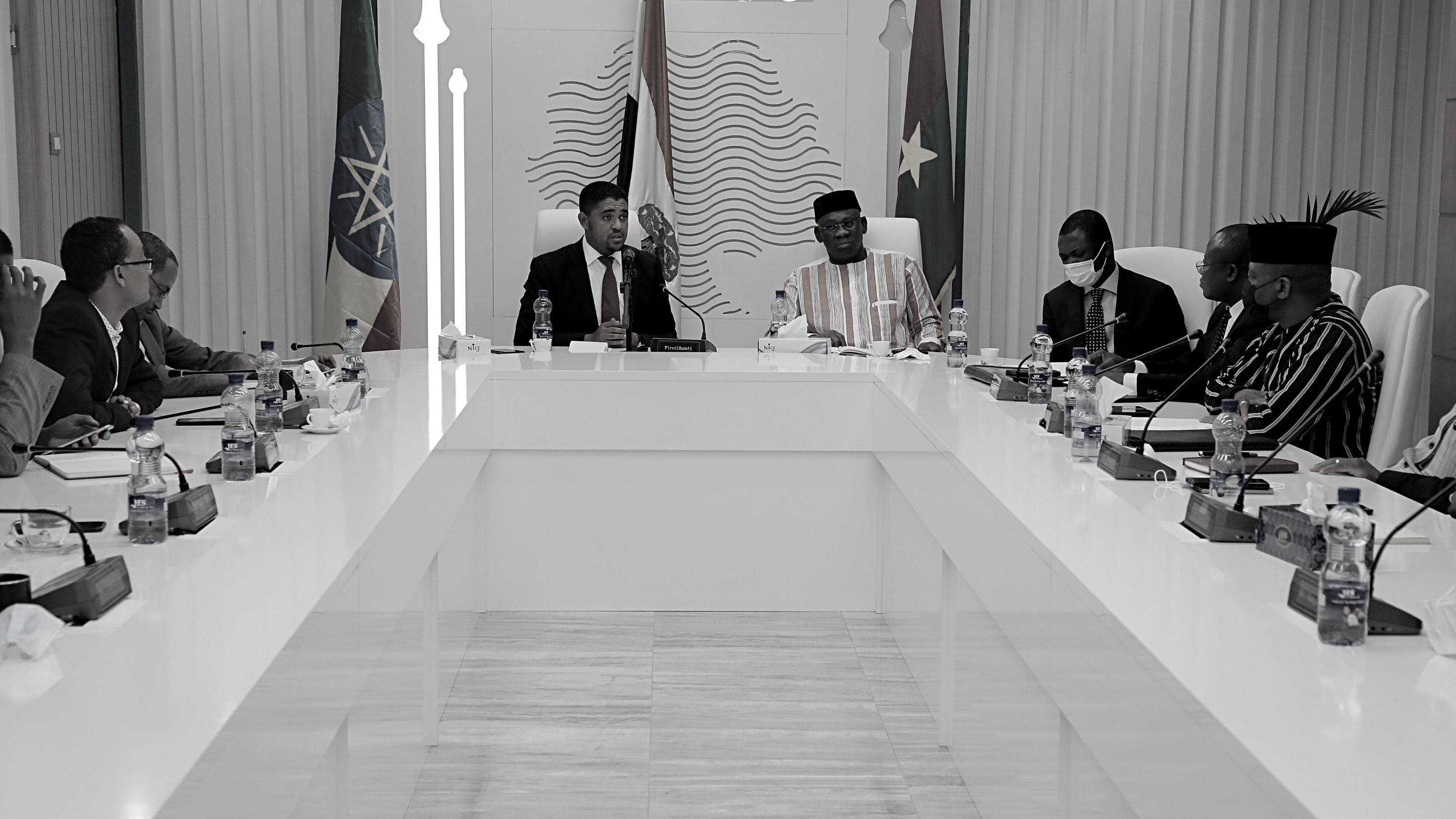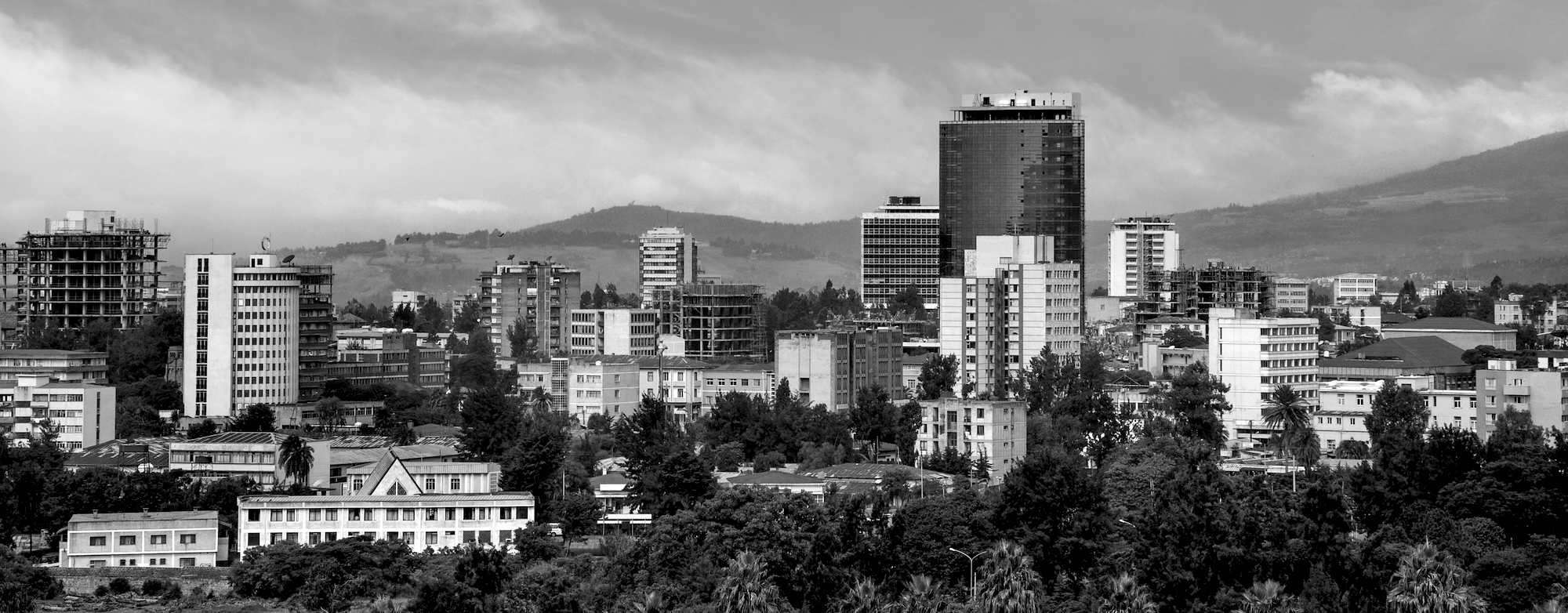A high-level delegation from Burkina Faso recently visited Ethiopia to learn from its efforts to boost employment and decrease poverty, focusing on the country’s successful implementation of plans to generate job opportunities for its youth, speed up the structural transformation of its economy and achieve sustainable socio-economic development.
Ethiopia is the second-most populous nation in Africa after Nigeria and the fastest growing economy in the region. According to the World Bank, the country has experienced consistent economic growth, driving positive trends in poverty reduction in both urban and rural areas. The share of the population living below the national poverty line decreased from 30% in 2011 to 24% in 2016. This growth momentum is set to be sustained under the country’s Homegrown Economic Agenda (2020-2030).
Big Win Philanthropy helped to organize the visit in support of Burkina Faso’s efforts to develop a new strategy for human capital development. The delegation of ministers and special advisors to the president of Burkina Faso met with Ethiopian federal-level ministries and commissions to learn about the national-scale implementation of economic transformation initiatives. Additionally, the visit made a case study of Ethiopia’s Oromia Regional State, which has successfully implemented plans for economic transformation and employment generation aligned with national initiatives.
The delegation received a presentation from the Deputy Commissioner of the Planning and Development Commission on Ethiopia’s 10-year prosperity plan, which emphasizes the priority of creating jobs for youth. The visit also included meetings with the State Minister of the Ministry of Trade and Industry and the Ministry of Foreign Affairs, as well as tours of industrial parks and factories relevant to the Burkina Faso context.
In addition, the delegation met with Ethiopian Jobs Creation Commission (JCC) Commissioner Nigussu Tilhun, who presented the JCC’s strategy for improving youth employment. The JCC was established in 2018 and governs, coordinates, and monitors the job creation agenda nationally. It aims to facilitate the creation of 14 million jobs by 2025 and 20 million jobs by 2030.
During this meeting, the delegation also learned about Ethiopia’s Jobs Enablement and Data Interoperability (JEDI) platform, developed by Zenysis Technologies to facilitate evidence-based decision-making through aggregating employment data from different information systems. Now in its second phase of expansion, the platform aggregates more than 20 data sources including job creation reports, education data, and labor force and employment surveys to create a national employment database and verify the accuracy of reports received from a variety of sources.
To better understand the Oromia region’s experience creating six million jobs between 2016-2020 and developing plans to plans to deliver lasting and meaningful results for its citizens, the delegation met with Oromia President Shimelis Abdisa and experts from the Oromia Central Delivery Unit (OCDU). The region contributes 40% of Ethiopia’s GDP and is home to more than 37 million people, of whom 21 million are between the ages of 15-34.
With support from Big Win and PEMANDU Associates, a consultancy that has facilitated the delivery of national-scale transformation programs in multiple countries, the Oromia regional government is using the ‘Big Fast Results’ (BFR) methodology to facilitate its economic transformation. The BFR method is an eight-step approach to guide the strategic direction, assessments, and implementation of projects, and has enabled OCDU to identify over 5.6 million jobs that can be created by 2025.
Oromia President Abdisa shared his experience leading of the region’s ambitious agenda and the seven priority initiatives that will facilitate the generation of employment, social, and economic transformation: improving the investment climate, increasing productivity in agriculture, enhancing the mining sector, accelerating the development of the Geda Special Economic Zone, developing tourism, improving rural finance and agricultural mechanization, and the family prosperity initiative.
OCDU also provided insights from its work to date, which included repurposing the unit to ensure alignment, focus, and accountability. Factors that have helped OCDU improve its delivery include political backing, focusing on a small number of result areas, and cross-governmental ownership of the delivery unit’s results agenda.
The Burkina Faso delegation was led by Salifo Tiemtore, Minister of Youth, Entrepreneurship and Employment and included Tegwende Modeste Yerbanga, Minister of Livestock and Fisheries, Pr. Nicolas Meda, Special Advisor to the President in charge of Human Capital Development, Stephane Ouedraogo, Special Advisor to the President in charge of Economic and Financial Affairs, Mathias Some, Special Advisor to the President in charge of the Presidential Delivery Unit. They were supported by staff of the Tony Blair Institute, Burkina Faso: Donald Bambara (Lead), Tebila Nakelse (Agricultural Advisor), and Sarah Kam.

